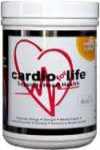|
What is Your Ideal Cholesterol level?The current average cholesterol level in the United States as reported by USA Today back in December 2007 stands at... 199mg/dl or 5.lmmol/l USA today reported that results in a national survey from blood tests found that average total cholesterol levels dropped to 199mg/dl (5.1mmol/l) in 2006 - down from 222mg/dl (5.7 mmol/l) when the survey first began in 1960. Most experts agree that generally speaking... 200mg/dl (5.1mmol/l) should be the upper limit of your Total Cholesterol reading This downward trend is thought to be due to the wide spread use of cholesterol medication known as statins. By way of comparison, the latest data available from the world health organization or WHO, lists average total cholesterol levels in men for other global territories as follows...
Women's levels tend to come in a little under those of men.
A high Cholesterol level...one that is consistently elevated is implicated as a risk factor for developing coronary heart disease...even more so in combination with one or more other risk factors. Research indicates that there is a relationship between abnormal cholesterol and coronary heart disease. This relationship has birthed an incredibly lucrative business in the production of cholesterol medication...this type of commercial pressure can cloud the issue somewhat... To some extent there is a certain amount of over-emphasis on cholesterol by some individuals and organizations. It is important to maintain healthy cholesterol levels..yes...but remember..it is only one risk factor of many... When considering your total cholesterol level.....consider this.. It is certainly possible for you to have a higher than normal total cholesterol when tested and still have a relatively low risk for developing coronary heart disease. How is this possible? Well....if there is an absence of all other risk factors for you developing Coronary heart disease..and... the individual components of your cholesterol are within a certain acceptable range...then your total cholesterol reading may not be quite as important as it may appear. As far as relying on total cholesterol levels is concerned to help you and your health care professional decide if this is a risk factor for you or not...well... The total cholesterol level alone does not give a complete picture... and therefore may even lull you into a false sense of security. Why is that?.. Total Cholesterol is made up of different components...varying amounts of which can have both positive and negative effects on your health. For this reason it is important to break down the total level result into separate categories and assess the individual levels for being within a safe range. So what does this all mean...as far as your health is concerned? Let's break down your total cholesterol to understand the importance of your level. There are three major categories of blood fats represented in your total cholesterol that your health care provider will be concerned with. LDL: is the predominant cholesterol type found in your body. Don't get confused with the name....low density....this has nothing to do with quantity. LDL is actually the most common type of cholesterol circulating in your blood. HDL: is present in your blood in lesser amounts. Triglycerides along with VLDL and Chylomicrons which transport this fat around your body are present in your bloodstream in varying amounts. They are produced by your liver in response to your dietary choices....what you eat or drink and are also present in foods as fat. Research has revealed that certain individual levels of these categories of blood fats equate with an elevated risk of developing coronary heart disease. With respect to triglycerides, while a high level may increase your risk of developing coronary heart disease, very high levels may not. While this may seem very confusing, the rationale behind this is that very high triglyceride levels tend to form very large molecules in the blood and it is thought that they have trouble penetrating artery walls and damaging the wall lining. Ideal cholesterol levels: Now...here are where your levels should be if you are currently well...with no risk factors for coronary heart disease....as recommended by the American Heart Association.
The only figure in your lab results that can safely be above these recommended levels is your HDL cholesterol. HDL is sometimes referred to as "good cholesterol" and higher levels are thought to actually provide some level of protection from coronary heart disease. If you live outside the US...then your lab results will likely look like this...these are the same recommended levels in different units.
click here for help understanding cholesterol results
As you can see, if all you know is your total cholesterol...it doesn't tell you the whole story. You need to know that your... and your... It's important that the components that make up your total cholesterol are within the recommended guidelines in order to remove elevated cholesterol from your list of potential risk factors. Potentially, your total cholesterol could be elevated because your HDL level...or good cholesterol is higher than the minimum recommended level. This would be a good thing for you....so... Don't get concerned about your total cholesterol level until you know what is contributing to that total.
Click here for info on Statins Cholesterol lowering medication
Cholesterol Ratio. Your ratio is simply another way of quickly establishing whether your cholesterol components...in this case your good cholesterol or HDL is represented favorably in your Total Cholesterol. The higher your HDL....the lower the number in your ratio...and...the lower your risk of developing coronary heart disease due to abnormally high cholesterol as a contributing risk factor. What should cholesterol levels be if you know that you have other risk factors or perhaps you've already been diagnosed with coronary heart disease. Does that make a difference? Yes. If you currently know that you have coronary heart disease or you're simply aware of other risk factors that you have for developing it, then your ideal LDL cholesterol...your "bad cholesterol" is set lower. You need to concentrate on lowering your LDL and Triglycerides as much as you can and take steps to increase your HDL Your new LDL goal in this case is 70 mg/dL or 1.8mmol/l So...if you've recently had a heart attack....or you have been diagnosed with coronary heart disease at some point in the past...or you have two or more known risk factors for developing the disease....then this should be your LDL goal. Knowing what your cholesterol level is, is an important tool in evaluating whether your blood cholesterol is a potential risk factor for you to develop coronary artery disease...or put you at further risk if you already have it. While your total cholesterol may indicate an issue..it is important for you to know the levels of your individual cholesterol components. With all the information, you can now put your total cholesterol reading into the correct perspective and act accordingly.
Click here to go from your ideal cholesterol level to coronary heart health Home Page
|
| Achieve Your Goal Fat loss Quickly Understand the No Gimmicks!
|
|
| Weight Control Hot Links |
| Make keeping healthy THE priority |





